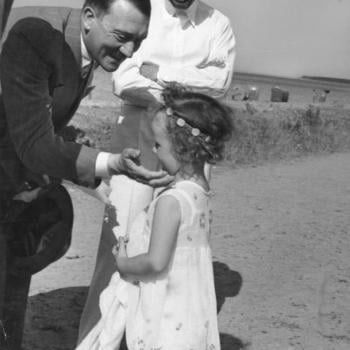The Key Difference between Conservative and Postconservative Evangelicals
Some years ago I thought I coined a new label for a certain group among evangelical theologians, pastors, students and reflective lay evangelicals: “Postconservative.” I even wrote an article about the label and category that was published in The Christian Century. Then I wrote a book about it titled Reformed and Always Reforming: The Postconservative Approach to Evangelical Theology (Baker). Then I discovered that others had used “postconservative” before me. I have found only two examples, but there may be more.
Then Fuller Seminary theologian Jack Rogers wrote a book that influenced me greatly—back when I was first emerging from fundamentalism into the larger, wider evangelical world. The title of the book is Confessions of a Conservative Evangelical. After I wrote about it “postconservative evangelical theology” I began to wonder because the title of Jack’s book did not really fit its content and message. So I contacted him and he informed me what I had come to suspect is true. His intended title for the book was Confessions of a Postconservative Evangelical. Apparently the publisher dropped the “Post” from “Postconservative” which made the title and the story (of Jack’s theological pilgrimage) inconsistent.
Then I found that Clark Pinnock had used the label “postconservative” in his book Tracking the Maze. But he used it differently than I use it. However I did always consider Clark an example of what I mean by “postconservative evangelical.”
*Note: Here I speak/write only for myself. If you intend to respond, be sure to read my note at the end here.
As I reflect back on my intended meaning of “postconservative evangelical theology” now I conclude that I had one key idea in mind—that even evangelical theology is never finished, that God always has more light to break forth from his word. (That saying is attributed to Separatist pastor John Robinson in a sermon he preached to the “pilgrims” as they set off for the New World.)
Years ago I read an article in Christianity Today by evangelical theologian David Wells entitled “The Stout and Persistent Theology of Charles Hodge.” In the article Wells claimed that no evangelical theology had improved on Hodge’s in the century since his Systematic Theology was published in the 1870s. The implication I drew from the article was that none ever would.
As I observed evangelical theology and theologians over the years I discovered a deep divide between two types and two groups identified with each type. One type and the theologians associated with it believe that the constructive task of theology is finished—forever. The only tasks of theology are re-statement of what was constructed by theologians such as Hodge and critique of alternatives.
The other type of evangelical theology and the theologians associated with it believe that the constructive task of theology is never finished because God always has new light to break forth from his word and because the church and theology should be “reformed and always reforming.”
My term “postconservative” was widely misinterpreted as somehow implying a departure from the Bible and tradition using contemporary culture as a source and norm equal with, if not superior to, the Bible itself. That was never my intention and I never said or implied such.
My point was that no system of theology is sacrosanct.
When I was in seminary one of my beloved professors, Al Glenn (may he Rest In Peace), taught me this poem by Alfred Lord Tennyson: “Our little systems have their day; they have their day and cease to be. They are but broken lights of Thee and Thou, O God art more than they.”
But! Even for postconservative evangelical theologians the source and norm of constructive theology is the Bible, not contemporary culture. Contemporary culture is the milieu into which we speak and we must express truth in a way that can be understood. But contemporary culture is not a source or norm for constructive theology.
Two examples of postconservative evangelical theology come to mind: Clark Pinnock’s (and others’) “openness of God” view and N. T. Wright’s “new interpretation of Paul.” Both depart from tradition but only because they believe fresh and faithful interpretation of Scripture requires it.
I think conservative evangelical theology that enshrines some system of dogmas like Hodge’s and is closed to any “new light” and rejects the constructive task of theology entirely violates the Scripture principle.
I have to say that I was delighted when Tom Wright said in his book Justification that he is one of my postconservative evangelicals. Richard Bauckham said the same to me in person. Both are models of what I mean by “postconservative evangelical theology.” I won’t name others here because they have not said to me that they embrace the label. But there are many others.
*Note: This blog is not a discussion board. Please respond to me if you respond at all. I moderate this blog and delete comments that are hostile, uncivil, that attempt to misuse my blog to preach or promote a different message. This blog is for friendly civil dialogue among evangelicals. Others are welcome to ask questions to better understand evangelicalism and evangelical theology. Do not post hyperlinks here! Avoid naming names in any way that could be construed as slander.

















